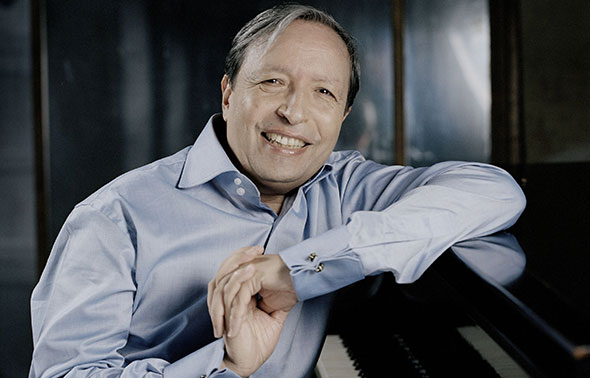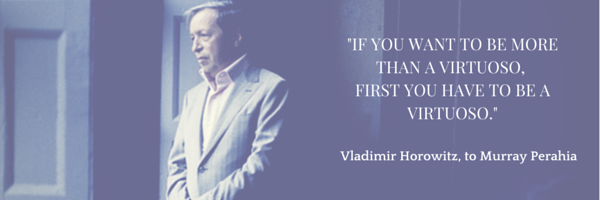A piece of advice from Murray Perahia
February 4, 2015

Murray Perahia grew up in the Bronx of New York City, starting slowly as a pianist (he didn’t train seriously until age 15). Perahia’s good friend and famous teacher, the late Vladimir Horowitz, initially spent 13 years attempting to contact Perahia. By the time the two finally agreed to work together, Perahia was an established pianist. And Horowitz, whose use of tone color is nearly unrivaled, eventually became the teacher who championed Perahia to fame. Throughout Horowitz’s coaching in the 1980s, the two focused not only on technique but also the conceptual side of mastering the piano.
“We explored the ‘virtuoso’ piano. When you learn the colors that the piano can command, you learn the scope of what piano playing can do,” Perahia said.

Perahia is also known to have made mistakes during his recitals, attributed to his hand injuries. But it wouldn’t be surprising if Horowitz was Perahia’s original instigator when it comes to “flubbed notes.”
“I must tell you I take terrible risks,” Horowitz once said. “Because my playing is very clear, when I make a mistake you hear it. If you want me to play only the notes without any specific dynamics, I will never make one mistake. Never be afraid to dare.”
Read more from The Spectator’s 2009 interview with Perahia:
Murray Perahia was 17 when Vladimir Horowitz, perhaps the finest pianist of the 20th century, knocked on the door of his family house in the Bronx. “Could I speak to Mr. Perahia?” the great man said through the door. “Hold on, I’ll get my father,” said Murray. “No,” said the voice. “I mean Murray Perahia. It’s Mr. Horowitz here.” Young Murray still had no idea who this visitor was. “In my Jewish neighbourhood, everyone was Mr. Horowitz,” he said.
But once he opened the door, the penny dropped. Though Perahia hadn’t yet decided to be a pianist, news of his talent had spread across the city and reached the ears of the master. And once Horowitz heard Perahia play he immediately offered to take him on as a student. “In the end, actually, it didn’t happen then,” said Perahia. But Horowitz remained interested, and the invitations continued over the years. “I kept getting messages, saying, ‘Mr. Horowitz would like you to call him.’” Thirteen years later, when Perahia was established as one of the world’s finest players himself, he finally returned the call. “Horowitz’s first words to me were, ‘Why didn’t you study with me?’ Then he said: ‘I know: you were too frightened.'” Perahia pauses. “And, you know, he got it right.”
Murray Perahia visits Kalamazoo on March 18 at Chenery Auditorium.
